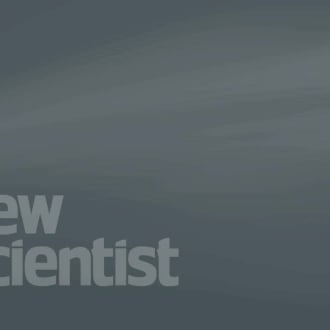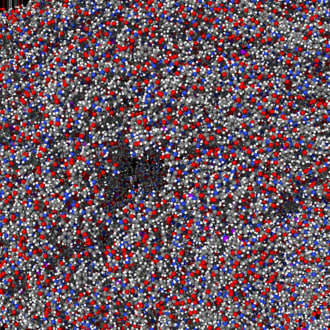The Best of New Scientist
20+ most popular New Scientist articles, as voted by our community.
Trending
These are currently making the rounds on Refind.
GPT-4 developer tool can hack websites without human help
The developer version of OpenAI’s leading large language model can be repurposed as an AI hacking agent, researchers have found. That could make it far easier for anyone to launch certain cyberattacks…
Your nationality may influence how much you talk with your hands
When recounting an episode of the children's TV show Pingu, people from Italy made an average of 22 gestures per 100 words, compared with 11 for Swedish people
Eleven of the greatest scientific hoaxes
The history of science is replete with frauds and fakers - here are eleven of the most creative
In my view
Is scientific knowledge shaped by culture? Robert Matthews listens in on a clash of ideas
D-Wave says its quantum computers can solve otherwise impossible tasks
Quantum computing firm D-Wave says its machines are the first to achieve "computational supremacy" by solving a practically useful problem that would otherwise take millions of years on an ordinary…
New Scientist on Aging
How postbiotics could boost your health and even help reverse ageing
Postbiotics are the newest gut health trend promising to improve our skin, boost our strength and even reverse signs of ageing. But what are they and do they live up to the hype?
New Scientist on Biology
Recordings reveal that plants make ultrasonic squeals when stressed
For the first time plants have been recorded making sounds when stressed. The sounds differed when they were injured or thirsty, a finding that could help farmers
Rescue plan for nature: How to fix the biodiversity crisis
We’ve been ravaging the planet’s ecosystems for too long, but crucial decisions this year could be the turning point that help us restore our relationship with nature
New Scientist on Brain
How your brain stays focused on conversations in a noisy room
The brain processes voices differently depending on the volume of the speaker and if the listener is focused on them
Human brain cells used as living AIs to solve mathematical equations
Brain organoids grown in a lab can be used to perform basic computation tasks, but there are big unanswered questions about how far this approach should be taken
New Scientist on Elon Musk
Elon Musk spent 2023 shaping Twitter
After taking control of Twitter in 2022, Elon Musk hired a new CEO to replace himself, all while continuing to transform the social media platform into X
Neuralink: What do brain implants do and why is Elon Musk making them?
Elon Musk's Neuralink company is conducting its first human trials, implanting a tiny chip onto the surface of a person's brain to allow them to talk directly with computers
New Scientist on Longevity
115 might be as old as we can get thanks to our bodies' limits
Maximum lifespan is not rising in step with average lifespan. It could be that the human body has innate limits that prevent most getting any older than 115
New Scientist on Physics
Why the laws of physics don't actually exist
What we call laws of physics are often just mathematical descriptions of some part of nature. Ultimate physical laws probably don't exist and physics is all the better for it, says theoretical…
Watch 44 million atoms simulated using AI and a supercomputer
This simulation models a huge number of atoms in detail with the help of artificial intelligence
New Scientist on Quantum Computing
Microsoft says its weird new particle could improve quantum computers
Researchers at Microsoft say they have created elusive quasiparticles called Majorana zero modes – but scientists outside the company are sceptical
'Fluxonium’ is the longest lasting superconducting qubit ever
A fluxonium qubit can keep its most useful quantum properties for about 1.48 milliseconds, drastically longer than similar qubits currently favoured by the quantum computing industry
New Scientist on Robotics
Metal robot can melt its way out of tight spaces to escape
A millimetre-sized robot made from a mix of liquid metal and microscopic magnetic pieces can stretch, move or melt. It could be used to fix electronics or remove objects from the body
Google robot learns to sort the recyclables left in office waste bins
Robots have been roaming Google offices for two years, attempting to separate recyclable items from waste in bins and can now do it with 84 per cent accuracy
New Scientist on Science
How long can humans live? We may not have hit the limit yet
[tbc] The record for the maximum human lifespan has stayed unbroken since the 1990s but that might change, according to a new way of analysing mortality records
Time appears to run five times slower in the early universe
A phenomenon called cosmological time dilation means that events taking place in the early universe seem to evolve slower than those today
New Scientist on Self Discovery
Your true self: How your personality changes throughout life
You are not the person you were as a child, or even last year. The discovery that our characters change is unnerving, but embrace it and it can be empowering
Popular
These are some all-time favorites with Refind users.
Can a tech billionaire squash Australia’s coal industry by buying it?
Frustrated with the Australian government’s inaction on climate change, software king Mike Cannon-Brookes is trying to buy several big coal plants so he can shut them down in favour of renewables
Heatwave in China is the most severe ever recorded in the world
A long spell of extreme hot and dry weather is affecting energy, water supplies and food production across China
Why rethinking time in quantum mechanics could help us unite physics
Inspired by experiments showing entanglement over time, not just space, physicist Vlatko Vedral is reconsidering the way we think of time in quantum mechanics. The new approach treats space and time…
James Lovelock at 100: The creator of Gaia theory on humanity's future
The influential scientist talks about his Earth-as-superorganism hypothesis and predicts a new era for humanity, unfettered by the constraints of our bodies
Chip can transmit all of the internet's traffic every second
Splitting data into a spectrum of colour packets has enabled a single computer chip to transmit a record 1.84 petabits of data per second via a fibre-optic cable
What is Refind?
Every day Refind picks the most relevant links from around the web for you. is one of more than 10k sources we monitor.
How does Refind curate?
It’s a mix of human and algorithmic curation, following a number of steps:
- We monitor 10k+ sources and 1k+ thought leaders on hundreds of topics—publications, blogs, news sites, newsletters, Substack, Medium, Twitter, etc.
- In addition, our users save links from around the web using our Save buttons and our extensions.
- Our algorithm processes 100k+ new links every day and uses external signals to find the most relevant ones, focusing on timeless pieces.
- Our community of active users gets the most relevant links every day, tailored to their interests. They provide feedback via implicit and explicit signals: open, read, listen, share, mark as read, read later, «More/less like this», etc.
- Our algorithm uses these internal signals to refine the selection.
- In addition, we have expert curators who manually curate niche topics.
The result: lists of the best and most useful articles on hundreds of topics.
How does Refind detect «timeless» pieces?
We focus on pieces with long shelf-lives—not news. We determine «timelessness» via a number of metrics, for example, the consumption pattern of links over time.
How many sources does Refind monitor?
We monitor 10k+ content sources on hundreds of topics—publications, blogs, news sites, newsletters, Substack, Medium, Twitter, etc.
Can I submit a link?
Indirectly, by using Refind and saving links from outside (e.g., via our extensions).
How can I report a problem?
When you’re logged-in, you can flag any link via the «More» (...) menu. You can also report problems via email to hello@refind.com
Who uses Refind?
450k+ smart people start their day with Refind. To learn something new. To get inspired. To move forward. Our apps have a 4.9/5 rating.
Is Refind free?
Yes, it’s free!
How can I sign up?
Head over to our homepage and sign up by email or with your Twitter or Google account.

























